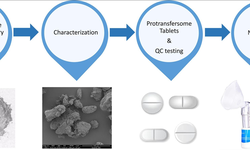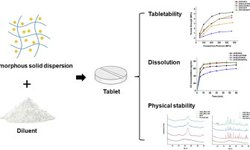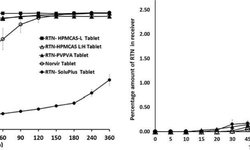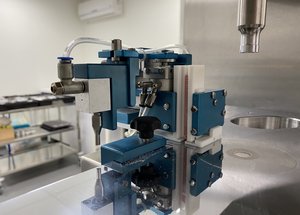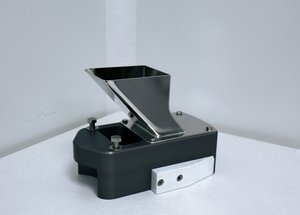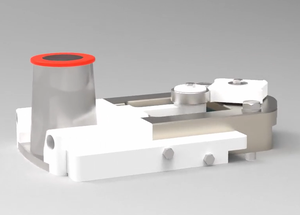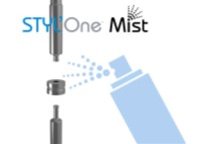Scientific papers
Compaction pressure can cause undesirable effects in drugs such as solid-state polymorphic transitions, fragmentation, loss of coated pellet integrity, and reduced viability and vitality of microorganisms. To mitigate these effects, excipients with increased plasticity are considered. This study aims to enhance the plasticity (reduce the mean yield pressure; Py) of dried microcrystalline cellulose (MCC) by incorporating a selected plasticizer. Diethyl citrate (DEC), water, and glycerol were evaluated as plasticizers. Solubility parameters were computed to predict the miscibility of MCC with these plasticizers, indicating a potential plasticization effect. MCC spheres loaded with 5.0 wt.% water, 5.2 wt.% DEC, and 4.2 wt.% glycerol were produced via a solvent method followed by solvent evaporation. These plasticized formulations were characterized using TGA, DSC, pXRD, FTIR, pressure-displacement profiles, and in-die Heckel plots. Py was derived from the in-die Heckel analysis and served as a plasticity indicator. Compared to non-plasticized MCC (Py = 136.5 MPa), the plasticity of the plasticizer-loaded formulations improved (Py decreased) from DEC (124.7 MPa) to water (106.6 MPa) and glycerol (99.9 MPa), aligning with the predicted miscibility order based on solubility parameters. Thus, water and glycerol reduced the Py of non-plasticized MCC spheres by 16.3% and 30.0%, respectively. This feasibility study demonstrated the potential to modify MCC plasticity by incorporating a specially selected plasticizer.
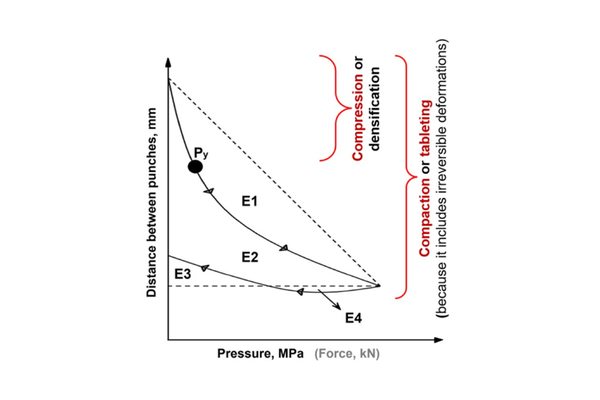
Comments
No comments posted yet.
Add a comment

